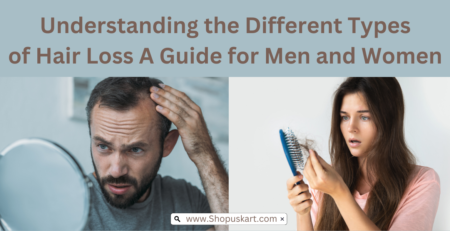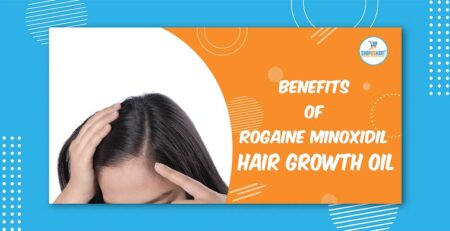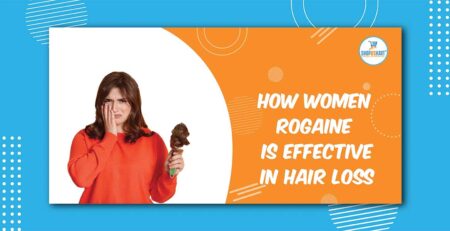10 Surprising Reasons Behind Sudden Hair Loss
Sudden hair loss can be a distressing experience, and its causes aren’t always obvious. Stress is a common factor in sudden hair loss, as it disrupts the growth cycle of hair follicles. Hormonal changes, such as during pregnancy or menopause, can also trigger unexpected shedding. Poor diet and nutrition deficiencies can weaken hair strands and lead to increased loss.
Emotional trauma or shock can result in telogen effluvium, a condition where large amounts of hair enter the resting phase simultaneously and fall out a few months later. Autoimmune diseases like lupus can lead to inflammation that impacts the hair growth cycle. Sudden weight loss or rapid fluctuations in weight can stress the body and cause temporary shedding.
In conclusion, sudden hair loss is a complex issue influenced by various internal and external factors that require proper diagnosis and treatment for effective management.
Hair loss is a common concern for both men and women, with a variety of factors contributing to sudden hair loss. While genetics and age are often the most well-known causes, there are several surprising reasons behind sudden hair loss that many people may not be aware of. Understanding these factors is crucial to effectively address and combat hair loss. In this article, we will explore 10 unexpected reasons behind sudden hair loss, providing valuable insight for those experiencing this issue.
1. Stress
One unexpected reason behind sudden hair loss is stress. Chronic stress can disrupt the hair growth cycle and lead to hair loss. Whether it’s due to work-related pressures, relationship issues, or other stressors, finding healthy ways to manage stress is essential for maintaining a healthy head of hair.
2. Hormonal Imbalances
Hormonal imbalances can also contribute to sudden hair loss. Conditions such as thyroid disorders, polycystic ovary syndrome (PCOS), and fluctuations in hormone levels during pregnancy or menopause can all impact hair growth. Seeking medical advice and treatment for hormonal imbalances can help to prevent further hair loss.
3. Poor Diet
A lack of essential nutrients in the diet can lead to sudden hair loss. Nutrients such as iron, zinc, vitamin D, and protein are vital for healthy hair growth. Incorporating a well-balanced diet rich in these nutrients can help to promote hair health and reduce the risk of hair loss.
4. Medications
Certain medications, including chemotherapy drugs, blood thinners, and antidepressants, can cause sudden hair loss as a side effect. If you are experiencing hair loss as a result of medication, consult with your healthcare provider to explore alternative options or potential solutions.
5. Hairstyling Habits
Over-styling, excessive heat, and tight hairstyles can all contribute to sudden hair loss. Constantly pulling on the hair follicles can cause damage and weaken the hair, leading to breakage and loss. Embracing a more gentle approach to hairstyling and avoiding harsh chemicals can help to preserve the health of your hair.
6. Medical Conditions
Underlying medical conditions such as alopecia areata, lupus, and fungal infections can also lead to sudden hair loss. It’s important to consult with a healthcare professional to accurately diagnose and treat any underlying health issues contributing to hair loss.
7. Environmental Factors
Exposure to environmental factors such as pollutants, UV radiation, and harsh weather conditions can damage the hair and lead to sudden hair loss. Protecting your hair from these external stressors with hats, scarves, and protective styling can help to maintain its health and vitality.
8. Aging
As we age, the hair growth cycle can slow down, leading to thinner hair and increased shedding. While aging is a natural part of life, there are ways to promote healthy hair growth in later years through proper nutrition, lifestyle habits, and regular scalp care.
9. Genetics
Genetics plays a significant role in determining hair loss patterns. If you have a family history of hair loss, you may be more likely to experience sudden hair loss yourself. Understanding your genetic predisposition can help you to proactively address and manage hair loss.
10. Emotional Factors
Emotional factors such as trauma, grief, and depression can also impact hair health and lead to sudden hair loss. Seeking support from a therapist or counselor to address emotional stressors can help to improve overall well-being and maintain healthy hair growth.
In conclusion, sudden hair loss can be caused by a variety of unexpected factors beyond genetics and age. By addressing these underlying issues and making healthy lifestyle choices, it is possible to combat hair loss and promote a full, healthy head of hair. Remember to consult with a healthcare professional for personalized advice and treatment options tailored to your specific needs.
1. Why is sudden hair loss different from gradual hair loss?
Sudden hair loss can be alarming because it occurs rapidly, often within a short period, whereas gradual hair loss is a slow process that may be more expected.
2. Can stress cause sudden hair loss?
Yes, stress is a common trigger for sudden hair loss as it can disrupt the normal growth cycle of hair follicles.
3. Are there any medical conditions that can lead to sudden hair loss?
Yes, conditions such as thyroid disorders, autoimmune diseases, and hormonal imbalances can all contribute to sudden hair loss.
4. Is sudden hair loss reversible?
In some cases, depending on the underlying cause, sudden hair loss may be reversible with proper treatment and lifestyle changes.
5. How can I prevent sudden hair loss?
Maintaining a healthy diet, managing stress levels, avoiding harsh styling products, and taking care of your overall health can help prevent sudden hair loss.
6. Can medications or treatments for other health conditions cause sudden hair loss?
Yes, certain medications and treatments like chemotherapy or radiation therapy can result in sudden hair loss as a side effect.
7. Is it normal to experience sudden hair shedding after giving birth?
Yes, postpartum shedding is common and typically resolves on its own within a few months after childbirth.
8. Will my hair grow back after experiencing sudden hair loss?
With the right treatment and care, many people do experience regrowth of their lost hair after experiencing sudden hair loss.
Pros:
1. Provides valuable insight into potential triggers for sudden hair loss.
2. Raise awareness about lesser-known causes of hair loss.
3. Helps individuals identify underlying health issues that may be contributing to their hair loss.
4. Offers solutions and recommendations for addressing the specific reasons behind sudden hair loss.
5. Encourages individuals to seek professional help and treatment for their hair loss concerns.
Cons:
1. May cause unnecessary anxiety or stress for individuals experiencing sudden hair loss.
2. Could lead to self-diagnosis and incorrect assumptions about the cause of hair loss.
3. Some reasons provided may not apply to all cases of sudden hair loss, leading to confusion.
4. Lack of scientific evidence or research supporting some claims about the causes of sudden hair loss.
5. Potential oversimplification of complex medical conditions related to hair loss in the article’s content.
Don’t forget to give us a follow on Facebook!😍












Leave a Reply